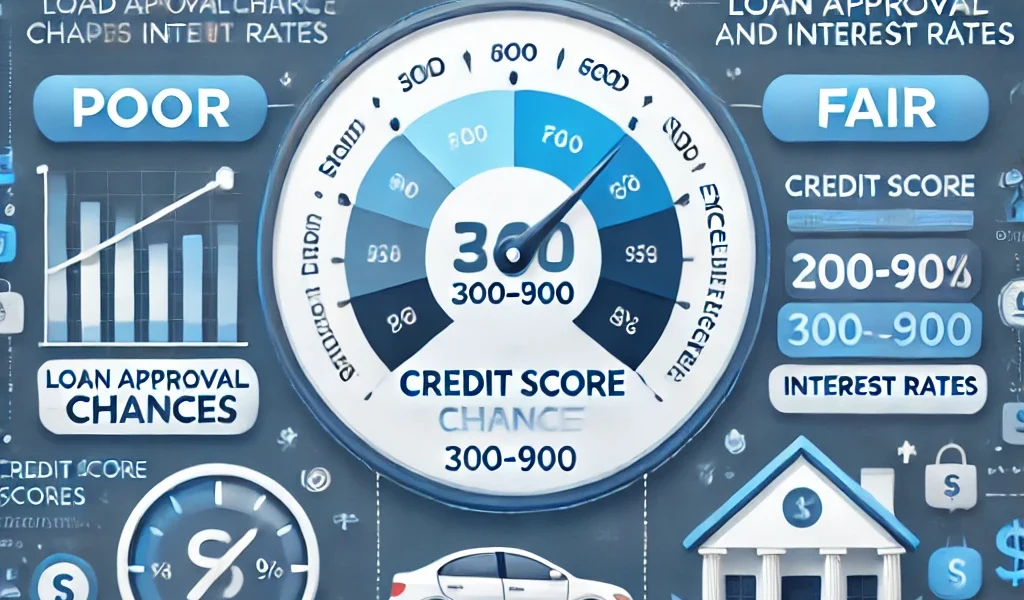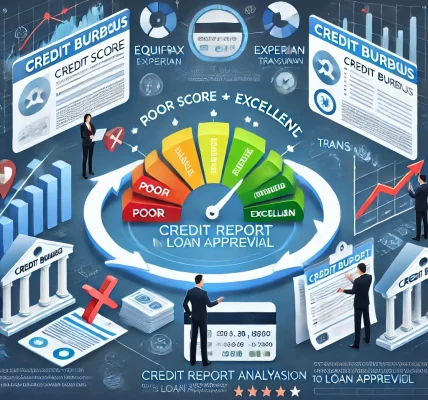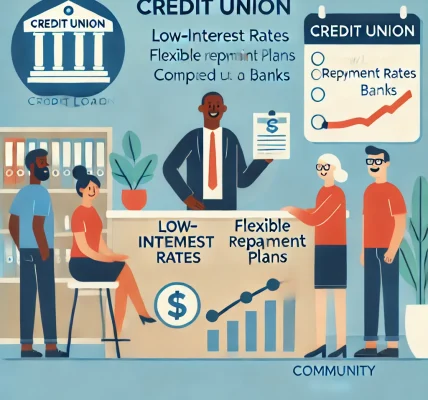Your credit score is one of the most critical factors lenders consider when evaluating your loan application. It affects not only whether you get approved but also the interest rate and loan terms offered to you. Understanding how your credit score impacts your borrowing ability can help you secure better financial deals.
1. What is a Credit Score?
A credit score is a three-digit number (ranging from 300 to 900) that represents your creditworthiness based on your borrowing and repayment history. It is calculated by credit bureaus like CIBIL, Experian, Equifax, and CRIF High Mark.
Credit Score Ranges & Their Meaning
| Credit Score | Rating | Loan Approval Chances |
|---|---|---|
| 750 – 900 | Excellent | High approval, low interest rates |
| 650 – 749 | Good | Approved with decent interest rates |
| 550 – 649 | Fair | Possible approval but with high interest rates |
| 300 – 549 | Poor | High rejection risk, very high interest rates |
2. How Credit Score Affects Loan Approval
✅ High Credit Score (750-900):
✔ Faster loan approvals with minimal documentation.
✔ Higher loan amounts approved.
✔ Lower interest rates, saving money on repayments.
❌ Low Credit Score (Below 650):
❌ Loan application may be rejected or require a guarantor.
❌ Higher interest rates, increasing your EMI burden.
❌ Limited loan options, as many lenders may not approve.
3. How Credit Score Affects Interest Rates
Lenders offer lower interest rates to borrowers with high credit scores because they are seen as low-risk customers.
Example of How Credit Score Impacts Interest Rates
| Credit Score | Home Loan Interest Rate | Personal Loan Interest Rate |
|---|---|---|
| 750 – 900 | 8.0% – 9.5% | 10% – 13% |
| 650 – 749 | 10% – 12% | 14% – 18% |
| 550 – 649 | 12% – 15% | 18% – 24% |
| Below 550 | 15%+ (High Risk) | 24%+ (Very High Risk) |
🔹 Tip: A high credit score can save you thousands in interest payments over the loan tenure.
4. Factors That Affect Your Credit Score
✔ Payment History: Timely payments boost your score, while late payments damage it.
✔ Credit Utilization: Keeping credit card usage below 30% of the limit improves your score.
✔ Length of Credit History: Older credit accounts contribute positively.
✔ Number of Credit Inquiries: Too many loan applications lower your score.
✔ Credit Mix: A good mix of secured (home/car loans) and unsecured (credit cards/personal loans) credit helps.
5. How to Improve Your Credit Score Before Applying for a Loan
✅ Pay EMIs and credit card bills on time.
✅ Reduce outstanding credit card balances.
✅ Avoid applying for multiple loans within a short time.
✅ Check your credit report regularly for errors and dispute inaccuracies.
✅ Maintain a good credit mix (secured & unsecured loans).
Final Thoughts
A high credit score improves your chances of loan approval and helps you secure lower interest rates. If your score is low, take steps to improve it before applying for a loan.




